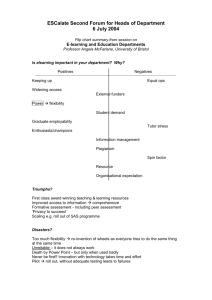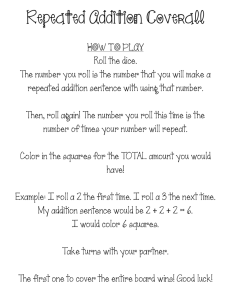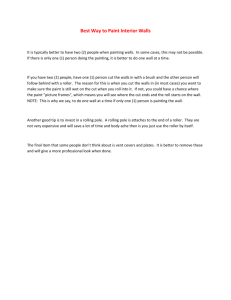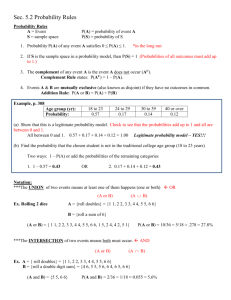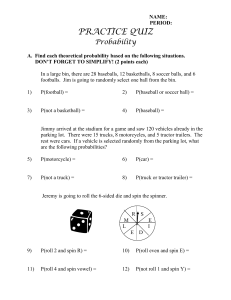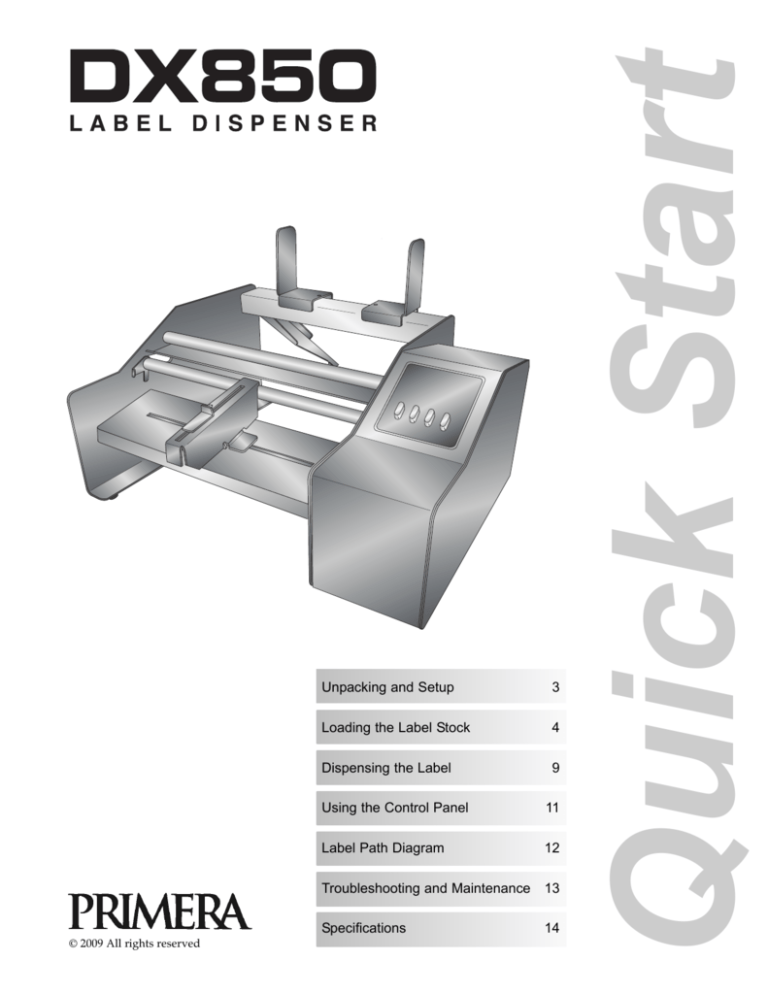
3
Loading the Label Stock
4
Dispensing the Label
9
Using the Control Panel
11
Label Path Diagram
12
Troubleshooting and Maintenance 13
Specifications
© 2009 All rights reserved
14
Quick Start
Unpacking and Setup
Notices: The information in this document is subject to change without notice. NO WARRANTY OF ANY KIND IS MADE WITH REGARD
TO THIS MATERIAL, INCLUDING, BUT NOT LIMITED TO, THE IMPLIED WARRANTIES OF MERCHANTABILITY AND FITNESS FOR A
PARTICULAR PURPOSE. No liability is assumed for errors contained herein or for incidental or consequential damages in connection with the
furnishing, performance, or use of this material. This document contains proprietary information that is protected by copyright. All rights are
reserved. No part of this document may be photocopied, reproduced, or translated into another language without prior written consent.
Trademark Acknowledgments: Windows is a registered trademark of Microsoft Corporation. All other trademarks are the property of their
respective owners.
Printing History
Edition 1.0, #052609, Copyright 2009, All rights reserved.
FCC Compliance Statement: This device complies with part 15 of the FCC rules. Operation is subject to the following two conditions:
(1) this device may not cause harmful interference, and (2) this device must accept any interference received, including interference that
may cause undesired operation.
For Users in the United States: This product is intended to be supplied by a UL listed Direct Plug-In Power Supply marked "Class 2"or a UL listed ITE
Power Supply marked "LPS" with output rated 12VDC, 4.5A or higher. This equipment has been tested and found to comply with the limits for a Class
A digital device, pursuant to Part 15 of the FCC Rules. In a domestic environment this product may cause radio interference, in which case the user
may be required to take adequate measures. This equipment generates, uses, and can radiate radio frequency energy and, if not installed and used in
accordance with the instructions, may cause harmful interference to radio communications. However, there is no guarantee that interference will not
occur in a particular installation. If this equipment does cause harmful interference to radio or television reception, which can be determined by
turning the equipment off and on, the user is encouraged to try to correct the interference by one or more of the following measures:
• Re-orient or relocate the receiving antenna.
• Increase the separation between the equipment and receiver.
• Connect the equipment into an outlet on a circuit different from that to which the receiver is connected.
• Consult the dealer or an experienced radio/TV technician for help.
Use of shielded cables is required to comply with the Class A limits of Part 15 of the FCC Rules. You are cautioned that any changes or
modifications not expressly approved in this manual could void your authority to operate and/or obtain warranty service for this equipment.
For Users in Canada: This digital apparatus does not exceed the Class A limits for radio noise for digital apparatus set out on the Radio Interference
Regulations of the Canadian Department of Communications. Le present appareil numerique n'emet pas de bruits radioelectriques depassant les
limites applicables aux appareils numeriques de la class A prescrites dans le Reglement sur le brouillage radioelectrique edicte par le ministere des
Communications du Canada.
General Safety Information.
Note: Notes are used to notify of installation,operation, or maintenance information that is important but not safety related.
Caution: Caution is used to indicate the presence of a hazard, which if ignored may result in damage to the unit.
Warning: Warning means that a potential safety hazard exists and indicates procedures that must be followed exactly to avoid serious personal injury.
!
WARNING!
TO PREVENT FIRE OR SHOCK HAZARD, DO NOT EXPOSE THE UNIT TO RAIN OR MOISTURE. TO REDUCE THE RISK OF
ELECTRIC SHOCK, DO NOT REMOVE EXTERIOR PANELS. NO USER-SERVICEABLE PARTS INSIDE. REFER SERVICING TO
QUALIFIED SERVICE PERSONNEL. OPERATE THE UNIT WITH ONLY THE PROPER ELECTRICAL SPECIFICATIONS AS LABELED
ON THE PRINTER AND AC ADAPTER.
!
WARNING!
DO NOT WEAR LOOSE FITTING CLOTHING SUCH AS NECK TIES OR LOOSE LONG SLEEVES WHEN OPERATING THE DX850. THE
MOTOR IS VERY POWERFUL AND THE LINER DRIVE ROLLER COULD CATCH THE CLOTHING WHILE THE LABELS ARE BEING
APPLIED.
Section 1: Unpacking and Setup
Thank you for purchasing the DX850 Label Dispenser (hereafter referred to as "Label
Dispenser").
The Label Dispenser includes a Power Cord, 12 volt Power Adapter and the parts shown in
Figure 1-1. The Roll Bar, Roll Guides and Roll Drag Arm are located in the supply box along
with the Power Cord. You will need to assemble them as shown in Figure 1-1 and 1-2. Also see
Section 2 for more detailed instructions on assembling these parts. Attach the Power Cord
and switch on the power as shown in Figure 1-2. Finally, remove the foam insert between the
Liner Idler Roller and Liner Drive Roller.
Figure 1-1.
Guide Roller
Label Sensor
Roll Guides
Roll Bar
Liner Drive Roller
Liner Idler Roller
Liner Idler Roller Tab
Control Panel
Label Sensor Bracket
Peel Edge
Figure 1-2.
Power Adapter
Roll Guides
Roll Bar
Power Switch
Power Input 12V
Power Adapter
Roll Drag Arm
Power Cord
DX850 Label Dispenser 3
Section 2: Loading the Label Stock
1.
Remove the Roll Bar and Roll Guides from the Label Dispenser. The Roll Guides and Roll
Drag Arm are removable and adjustable. They are held in place magnetically. (Figure 2-1.)
Figure 2-1.
2.
Remove one Roll Guide and the Roll Drag Arm from the Roll Bar.
3.
Place the label stock roll on the Roll Bar with one side against the upright of the remaining
roll guide. Place it on the Roll Bar with the loose end of the stock feeding off the top of the
roll. (Figure 2-2.)
Figure 2-2.
Tip! For smaller diameter label roll
cores you may need to reverse the
Roll Guides so that the bottom of the
guides are facing out to allow the
uprights to be placed next to the roll.
4 DX850 Label Dispenser
4.
Place the Roll Drag Arm under the Roll Bar. The Roll Drag Arm may be placed on either
side of the Roll Bar, but the rounded tip of the Roll Drag Arm should be located in the
center of the inside of the core. The arm is spring loaded so that there is downward
pressure on the inside of the roll. This helps prevent application alignment problems
near the end of a roll. (Figure 2-3.)
Figure 2-3.
5.
Place the removed Roll Guide back on the Roll Bar and slide it close to, but not touching the
label stock roll. (Figure 2-4.)
Figure 2-4.
Tip! Roll Guide Uprights
must not pinch the label
stock roll. (The label
stock roll must have freeplay between guides.)
DX850 Label Dispenser 5
6.
Now position the stock to correspond with the general area where the labels will be
dispensed.
7.
Pull the loose end of the label stock forward under the Top Roller. Pull approximately
6 inches of label stock out beyond the Peel Edge. (Figure 2-5.)
Figure 2-5.
Tip! See Section 5 for
a Label Path diagram.
8.
Take the loose label stock and feed it between the Liner Idler Roller and the Liner Drive
Roller. (Figure 2-6.) In order to feed the label stock between the rollers, the Liner Idler
Roller should be in the unclamped position. (See Figure 2-10 for a detailed diagram of the
Liner Idler Roller positions.)
Figure 2-6.
Note: This procedure assumes that the first 6 inches of labels will not be dispensed using the Label
Dispenser. Of course, you may still peel these labels by hand.
6 DX850 Label Dispenser
9.
Pull the stock through until the Peel Edge is positioned in between two of the labels.
(Figure 2-7.)
Figure 2-7.
Note: The liner may be fed out the front or back of the Label Dispenser.
10. Push the Liner Idler Roller into the clamped position by pressing your thumbs on the Liner
Idler Roller Tabs on both sides. (Figure 2-8.)
Figure 2-8.
DX850 Label Dispenser 7
11. Move the Label Sensor Bracket where desired within the width of the label. (Figure 2-9.)
Figure 2-9.
12. You are now ready to dispense labels.
8 DX850 Label Dispenser
Section 3: Dispensing the Label
To dispense a label, first load label stock as described in Section 2, connect power and switch on
the Label Dispenser. Follow these steps to dispense labels.
1.
Before you start dispensing you should adjust the Label Sensor on the Label Sensor Bracket
so that the distance between the Label Sensor and the Peel Edge is equal to roughly 1/2”
less than the label height. (Figure 3-1.)
Figure 3-1.
1/2" less than Label Height
For example, for a 4" wide x 2" high (101.6mm x 50.8mm) label you would set this distance
to approximately 1-1/2” (38.1 mm). The exact distance is not critical. It is only important
that you set the distance so that the label does not come off the liner when presented. If the
label height dictates the sensor be moved beyond the available travel, set the sensor to the
minimum or maximum position as applicable.
2.
To Start dispensing press the Start/Stop button on the Control Panel. (Figure 3-2.)
Figure 3-2.
Start/
Stop
Counter
Reset
+
-
DX850 Label Dispenser 9
3.
A label will peel off the liner until it trips the Label Sensor. (Figure 3-3.)
Figure 3-3.
4.
Pull the label off the liner with a quick upward motion. (Figure 3-4.)
Figure 3-4.
Note:
For labels higher than 3" (76.2 mm) you will have to slowly pull up on the label with continuous
force until the end of the label clears the Guide Roller. For these type of labels set the label sensor
bar to the maximum distance from the Peel Edge.
5.
When you are ready to stop dispensing labels or if you want to stop for another reason such
as adjusting the label sensor position, simply press the Start/Stop Button.
6.
To remove the label stock, disengage the Liner Idler Roller by pulling back on the tabs.
10 DX850 Label Dispenser
Section 4: Using the Control Panel
The Control Panel can be used to start and stop
dispensing of labels, display label counts and
other advanced functions.
Start/Stop Button: Starts or stops the motor
depending on whether or not the label sensor is
tripped. Note: If sensor does not get triggered in
a 24” run, the motor will stop.
a. If the motor is in Stop Mode the display
flashes. Otherwise the display is on
solid.
b. If held for 2 seconds it will toggle the
label counter between Decrement and
Increment Mode as indicated by the
lower right decimal point. If the
decimal point is on, the label counter
is in Decrement Mode.
Start/
Stop
Counter
Reset
+
-
Counter Reset Button: Pressing this button will
reset the label counter if held for 2 seconds.
+ Button: Pressing this button for 2 seconds will increase the label counter. It will repeat
advance if held.
- Button: Pressing this button for 2 seconds will decrease the label counter. It will repeat
advance if held.
Special Setup Modes:
1.
To set the LED Display Intensity: Press and hold the Start/Stop Button and the + Button until
the display changes to “LED”. Then press the + or – buttons to adjust the LED intensity.
2.
Half-Speed Mode: To start system in Half-Speed Mode for wide label stock: Press and hold
the – Button during power-up.
DX850 Label Dispenser 11
Section 5: Label Path Diagram
Label Path Diagram
Label Path
Liner Drive Roller
Liner Idler Roller
Peel Edge
Front or Rear Liner Output
12 DX850 Label Dispenser
Section 6: Troubleshooting and Maintenance
Troubleshooting
Motor stalling on labels 6" (152 mm) or wider.
For label stock 6” (152 mm) and wider, it may be necessary to reduce the speed of the Label
Dispenser. The Label Dispenser includes a Half-Speed Mode that generates more power
from the motor for wider label stock. To activate this mode, hold down the - Button while
switching on the unit. The Label Dispenser will revert back to the Default Mode when
switched on without holding down the - Button.
Maintenance
Unclamp Liner Idler Roller.
When not in use, leave the Liner Idler Roller in the unclamped position. This will minimize
the possibility that permanent indentations will be made in the Liner Drive Roller.
Lubricate bearings.
Primera recommends oiling the four bearings associated with the Liner Drive Roller and
Liner Idler Roller. Oil these four bearings for every 50,000 labels dispensed. They should
only be oiled after the first 50,000 labels as they are lubricated with a special grease at the
factory. One drop of any machine oil or motor oil for each bearing should be adequate. This
maintenance is optional but will increase the life of the Label Dispenser for heavy users who
use the Label Dispenser for several hours each day.
DX850 Label Dispenser 13
Section 7: Specifications
Supply roll diameter:
Up to 8" (203mm)
Label width:
0.75" to 8.25" (19.1mm to 209.6mm)
Media liner width:
1.00" to 8.38" (25.4mm to 213.0mm)
Label height/length:
0.75" to 24.00" (19.1mm to 609.6mm)
Supply roll core:
2" to 3" (51.8mm to 76.2mm) ID
Electrical rating:
12 VDC, 5.0 A
Power requirements:
100-240 VAC, 50/60 Hz, 60 watts
Feed speed:
4 in/sec. in Default Mode
2 in/sec. in Half-speed Mode for 6-8" wide labels
See Section 4.
Agency certifications:
UL, UL-C, CE, FCC Class B
Weight:
11.5 lbs (5.2 kg)
Dimensions:
13.44" W x 8.75" H x 11.25" D
(341mm W x 222mm H x 2876mm D)
14 DX850 Label Dispenser
P/N 511260 - 052609

